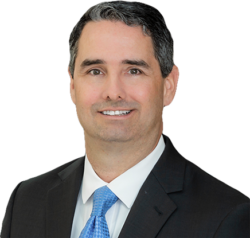August 14, 2024
ShareNCAA Settlement: A New Era for College Athletes and NIL
In a groundbreaking move that has sent ripples through the landscape of college sports, the NCAA has settled to allow direct payments to athletes, marking a significant shift in the longstanding tradition of amateurism in collegiate athletics. This decision, intertwined with the Name, Image, and Likeness (NIL) policies established in 2021, represents a progressive step towards recognizing and compensating the contributions of student-athletes.
The Road to Change
For years, the NCAA has faced criticism and legal challenges regarding its strict policies on amateurism, which prevented student-athletes from receiving any form of payment beyond scholarships. This settlement acknowledges the economic realities, and the substantial revenue generated by college sports, particularly in high-profile programs.
Under the new agreement, student-athletes can now receive direct payments from their schools. This provision is designed to ensure that athletes are compensated fairly for their contributions to their respective programs. The specifics of the payment structures will vary across institutions and sports, but the overall goal is to provide a more equitable environment for college athletes.
The NIL Factor
The 2021 introduction of NIL policies laid the groundwork for this recent settlement. NIL allows college athletes to profit from their name, image, and likeness, granting them the opportunity to sign endorsement deals, appear in advertisements, and leverage their personal brands. This was a pivotal change, acknowledging the unique marketability of student-athletes in a digital age, where social media presence and personal branding play crucial roles.
While NIL policies have already transformed the college sports ecosystem by enabling athletes to earn significant income from endorsements, the direct payment settlement addresses a different facet of athlete compensation. It provides a more structured and consistent form of financial support directly from educational institutions.
Implications for the Future
This settlement has far-reaching implications for the future of college sports:
For Athletes: Greater financial stability and the ability to focus more on education and athletic development without added financial pressure.
For Universities: An opportunity to attract top-tier talent by offering competitive financial packages.
For Sports: Potential widening of the gap between elite programs and smaller institutions, as wealthier schools with larger athletic budgets might have a competitive edge.
The Need for Legal Representation
As we enter this new era of collegiate athletics, the importance of competent legal representation for student-athletes cannot be overstated. The complex interplay between NIL opportunities, direct payments, and existing NCAA regulations creates a landscape that requires expert navigation.
Key areas where legal counsel becomes crucial include:
1. Contract negotiations for NIL deals
2. Understanding and compliance with NCAA regulations
3. Managing potential conflicts between school payments and external endorsements
4. Protecting athletes’ rights and interests in this evolving landscape
As a Partner at Kelley Kronenberg specializing in social media and sports and entertainment law, I understand the unique challenges that student-athletes face in this new environment. My team and I are equipped to provide the guidance necessary to help athletes make informed decisions and protect their interests. We have extensive experience navigating the complex intersection of NIL opportunities, NCAA regulations, and now, direct payment structures. Our goal is to ensure that student-athletes can fully benefit from these new opportunities while staying compliant with evolving rules and protecting their long-term interests.
Conclusion
The NCAA’s decision to allow direct player payments, in conjunction with the existing NIL policies, signals a transformative era in college sports. It’s a step towards fairness and recognition of the significant contributions that student-athletes make to their schools and the broader sports industry.
As this landscape continues to evolve, the focus will be on ensuring that these changes benefit all stakeholders involved, fostering a more equitable and sustainable future for collegiate athletics. For student-athletes navigating these new waters, having knowledgeable legal representation will be key to maximizing opportunities while staying compliant with evolving regulations.
How We Can Help
At Kelley Kronenberg, we understand the unique challenges college athletes face in navigating the digital landscape and protecting their reputations. Our team, led by Partner Timothy Shields, is specially equipped to provide expert guidance in this rapidly evolving area of law.
Timothy Shields focuses his practice on:
- Social Media Law
- Technology Law
- Sports and Entertainment Law
With extensive experience in handling digital media cases and a deep understanding of the legal intricacies surrounding technology and sports, Timothy is committed to safeguarding the reputations and future prospects of student-athletes. He provides tailored advice that considers the immediate impact of online defamation, long-term career implications, and personal branding strategies in the digital age.
Our firm stays at the forefront of legal developments in social media law, technology regulations, and the sports industry, ensuring our clients receive the most current and relevant advice. We work closely with each student-athlete to develop a personalized protection strategy that aligns with their unique situation and career aspirations.
Contact Us
If you’re a student-athlete seeking guidance on NIL opportunities, direct payment structures, or looking for assistance in navigating the complex intersection of college athletics and new compensation models, we’re here to help.
Visit us at www.kklaw.com or contact Timothy Shields directly at (954) 370-9970 to schedule your confidential consultation today. Let us help you protect your reputation and secure your future in the digital age.
Timothy Shields
Partner, Data Privacy, Technology, & Social Media
Kelley Kronenberg-Fort Lauderdale, FL.
(954) 370-9970
Email
Bio
DISCLAIMER: This article is provided as a courtesy and is intended for the general information of the matters discussed above and should not be relied upon as legal advice. Neither Kelley Kronenberg, nor its individual attorneys or staff, are responsible for errors, omissions and/or typographical errors – always seek competent legal counsel.



